Colonization was not an inevitable process, but rather an important historical process that shaped the global order. The intersectional relations between colonization, economic power and socio-political frameworks created an institutional basis for social inequalities against indigenous peoples. Colonization set in motion a continuous process of human deviation directed at indigenous societies by denying them human rights. In this section, I will demonstrate the long-term effects of colonization in Bolivia, especially with regard to the state's economic constraints, social stagnation and environmental debate.
The ideology of indigenous peoples is an open historical process, inevitably characterized by past and present colonialism, but which is constantly evolving due to social and political transformations. Evo Morales' election as Bolivia's first indigenous president was nothing short of a political revolution. The 2005 election, however, demonstrated the clear limitations and tragedy of a state disturbed by colonialism and deeply destroyed by modern capitalism.
Movimineto al Socialismo
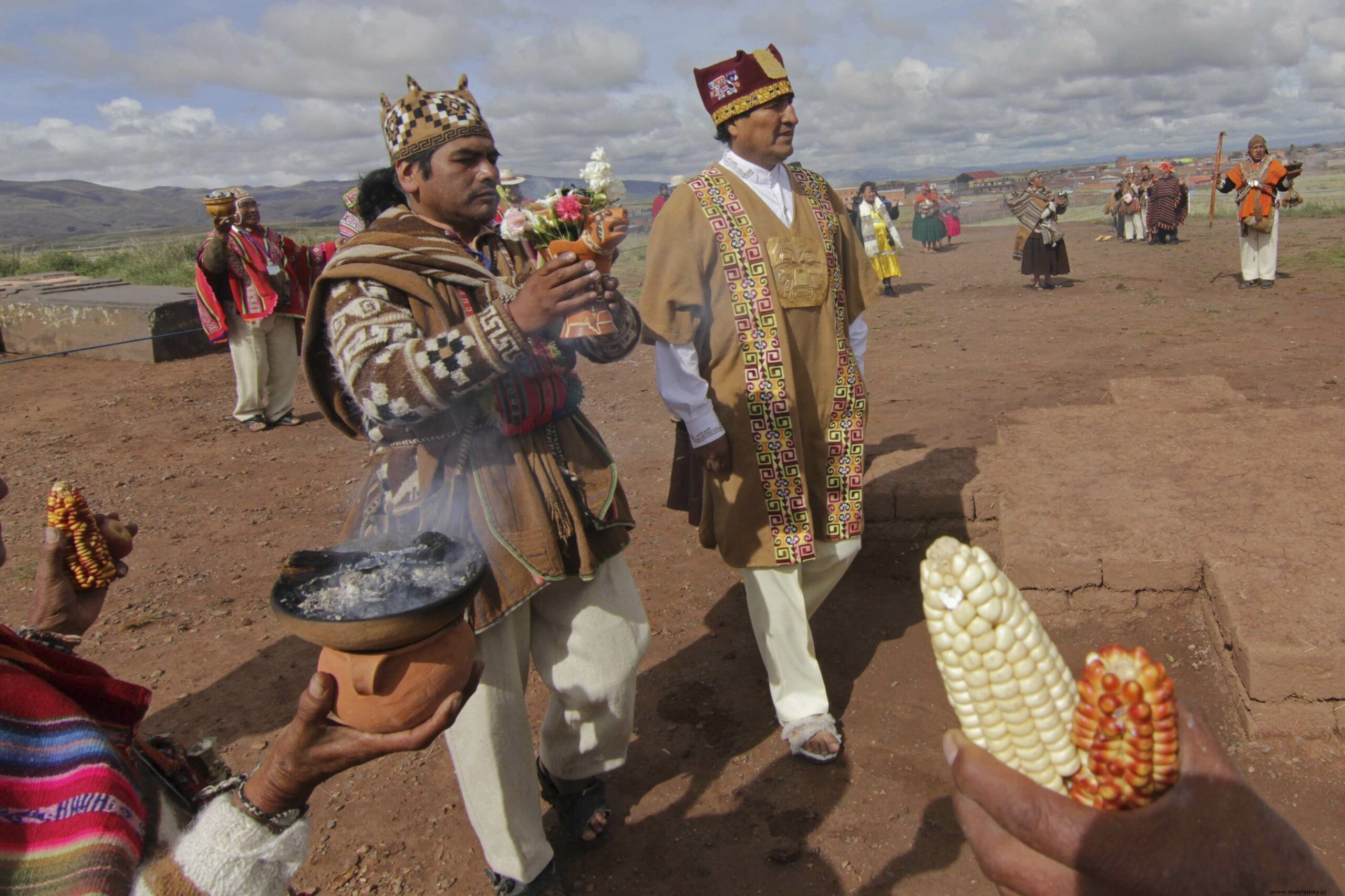
Bolivia's indigenous people have gone through centuries of oppression and exploitation, beginning with the country's colonization of the Spaniards in the 16th century. The colonized state was built on neoliberal ideals; the constitution was written to exclude the indigenous majority from cultural and political participation in state affairs. Evo Morale's election as Bolivia's first indigenous president in 2005 followed a mass social movement led by indigenous peoples and peasants struggling with unattainable rights and endless poverty. Morales and his Movimineto al Socialismo (MAS) party introduced a framework for social change that would "address the rights of indigenous peoples, their citizenship and their rights to seek recognition and resources from the state."
Morale's plan to decolonize Bolivia
Evo Morales' agenda promoted a shift in Bolivia's political ideals, ending the former civil society that took away the rights of the natives. The term "neoliberal multiculturalism" was coined in an attempt to create a form of citizenship for indigenous peoples. The new, decentralized government would be formed through a reconstruction of the state and the market by rewriting Bolivia's constitution. This revised construction would claim Bolivia as a decolonized state and be an organized society for the benefit of indigenous workers and their rights. The central conflict of Morale's government emerged from the underlying tensions between liberalism and capitalism, making social change difficult. Bolivia, in its attempt to overcome centuries with a radicalized government, eventually found conflicts between indigenous peoples, decolonization and a new state-centered government.

Stage 1
The early stages of the MAS government had to draw up a plan to ease the conflicts between previous notions of indigenous peoples, decolonization and the MAS government's agenda. The most prominent question that had to be considered was whether MAS could transform the former rule of law that excluded indigenous peoples, and overcome the political, social and economic dominance that persisted throughout Bolivia's history.
In his political campaign, Morales represented the Bolivian people, who were largely poor and indigenous. He wanted indigenous peoples to benefit from a non-neoliberal government, which promoted "a national sovereignty free from austerity imposed by US imperialism and neoliberal capitalism". Conflicts in Morale's presidency arose due to Bolivia's economic restrictions. for countries to achieve if their economies depend on the sale of natural resources.Morales' agenda was limited because of this dependence.
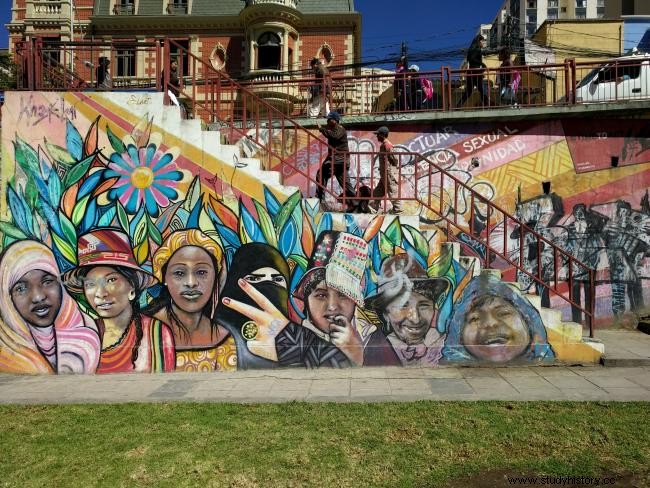
Reimagining of the state and the market
The original Bolivian republic was created by a white mestizo oligarchy, which originally divided the nation into classes, making real social reform difficult due to a lack of political and social union. The neoliberal laws excluded the poor and indigenous people from the state, and created a permanent state of prejudice and social divides. Morale's primary goal was to reinvent the relationship between state and market, to make the state the primary factor in economic development and to reintroduce a new social class. MAS wanted to create a direct democracy where the constitution would be rewritten to recognize the indigenous people as part of the population, and reintroduce their cultures, languages and customs.
The non-progressive plan
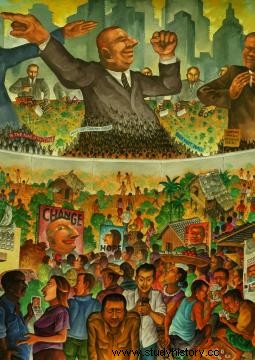
Morale's original agenda to reconstruct the relationship between the state and the market by making the state the primary voice in economic development was simply a failure. In his experiment, Morales used a process called progressive neo-extractivism.
Neo-extractivism, defined by social ecology researcher Edurado Gudynas, is "an emerging national development model of progressive governments based on the exploitation of natural resources and the export of primary materials". This model of neo-extractivism is "progressive" because some profits from the extracted resources are distributed to the population. However, this process only works to continue the cycle of international trade dependence. The cycle will only continue due to supply and demand.
Switched to MAS
Jeffery Webber, a Marxist analyst, characterized Morales' model of development as disappointingly reformist. Webber argued that it reinforces existing class and capitalist structures through a neo-structuralist model of development. This model "favors transnational corporations, the agricultural elite and fiscal security over real structural changes for the benefit of the poor".
Morales' period saw a shift from his passionate "living better" and in environmental harmony, to a continuation of state-controlled economy. The political framework for indigenous peoples and decolonization shifted from a strong passion for a traditional indigenous mindset, in which Mother Earth was more important than development, to a model that failed to completely disconnect from the countries' former neoliberal, capitalist model.
Cochabama Conference
The Global Conference on Climate Change and Rights of Mother Earth was held in Cochabama, Bolivia, in April 2010. The conference was an urgent response to the effects of climate change in Bolivia; Disasters included floods, limited drinking water and disappearing glaciers. Morales raised the issue by arguing that rich and developed countries should pay for their climate effects because poor countries, such as Bolivia, suffer from the environmental consequences created by capitalist countries. Morales insisted that humans need mother earth and that global warming must be reduced. He argued that the underlying cause of climate change is mass consumerism and capitalism's solution to overdevelopment is a sustainable model based on the indigenous value of living well.
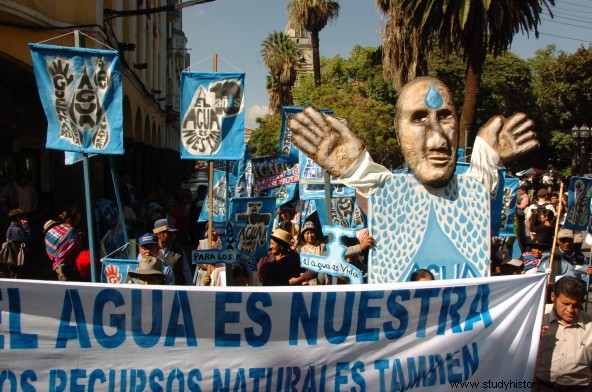
The failed development model
Morale's development model was attractive, as a symbol of saving the earth and a symbol of the human environment. Internationally, Morale's reputation grew, while his reputation in Bolivia was controversial due to ongoing government projects that exploit natural resources. Bolivia valued international trade for its income, and relied on natural resources to stabilize the economy and benefit the poor. The MAS government decolonized Bolivia's resources by changing resource utilization for the benefit of the poor. However, the government still had full power over natural resource extraction. Thus, Morales' efforts to give back to the poor contradict his urgency to limit the use of resources and reduce environmental disturbances.
Megaprojects
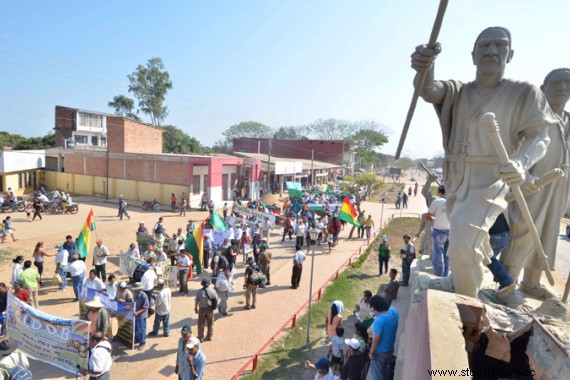
Instead of trying to fix the relationship between international trade and indigenous poverty, MAS read "megaprojects", exploiting the local population. Recognizing that the primary source of government revenue is the exploitation of natural resources and continuing to do so for political benefit, these projects have significant environmental costs and serious consequences for local communities living near extraction projects.
Capitalism over community
The prospect of decolonizing for the sake of the earth and its natives was ignored by Morales and his government. Morales had built an international reputation for defending Mother Earth and proclaiming that human life could not exist without the planet. His sustainable development model, although originally based on indigenous peoples' values, was a capitalist model in which indigenous societies were (negatively) most affected.
Resistance
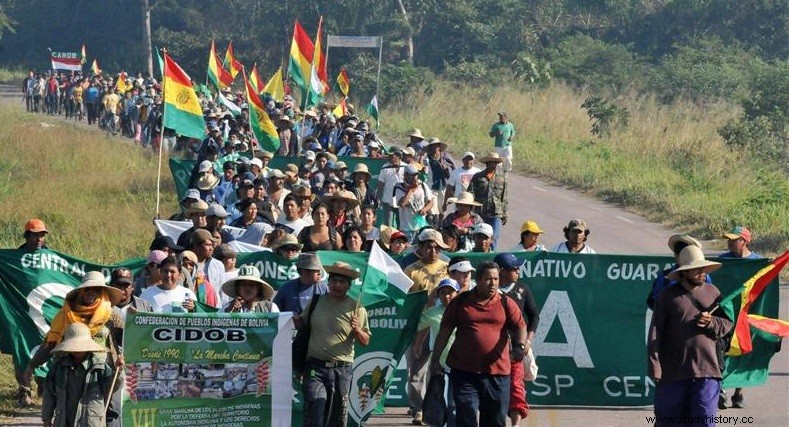
The Indigenous March for Life in 2011 was a strong indicator of public backlash against the recent government decisions and a response to the continuation of a neoliberal government. Morales planned to build a highway that he claimed would promote trade to the lowlands. However, the road went directly through a national park and forest reserve with indigenous people. The originally proposed state-run market was ignored during the highway project. The government had started the motorway project without consulting the local indigenous organizations, and then, when challenged, took an irreconcilable stance. Morales proclaimed that the consultations were not binding and that whether the indigenous organizations liked it or not, this road would be built. The highway is one example, among the many resource extraction projects, of Morales and his government ignoring indigenous peoples' rights for capitalist advantage.
Step 2; A new agenda
In July 2015, Morales delivered a speech at the Global Meeting for Social Movements; Morale's message varied from his previous speeches at the Permanent Forum for Indigenous Affairs and the Cochabama Summit. His primary focus had always been on promoting the values of indigenous peoples for Mother Earth's sake, but his later speeches focused on economic development as the solution to Bolivia's poverty. This discourse may have an attractive motive overall. However, the indigenous people continue to be strongly affected by the constant disruption of land, which gives them a far greater disadvantage than the economic benefits of the state.
The impact of MAS
Bolivia, which reached after a post-liberal revolution, was in a new system of development, based on resource extraction and therefore a continuation of industrialization and capitalist aggression. The indigenous people had benefited from Bolivia's economic exports, energy and food. The results of Morale's modern capitalist project contributed to deforestation, exploitation of protected indigenous areas and increased agriculture that were not conducive to local communities due to mass exports. Indigenous peoples' way of saving Mother Earth has been rejected, including the poor indigenous people who continue to have their country destroyed.
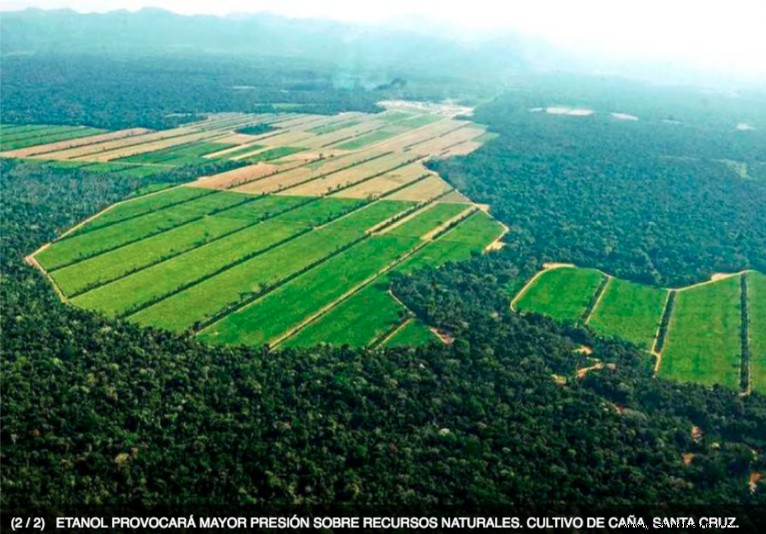
Indigenous peoples in the lowlands are still dependent on subsistence agriculture and continue to be concerned about the use of natural resources and its effects on the earth. The misconception of decolonization comes from the understanding that it shifts colonial heritage; decolonization is to ensure a fair distribution of national development to the indigenous people. The indigenous people are taking advantage of Bolivia's economic exports, energy and food due to the redistribution of profits from the state. Indigenous communities in urban areas could benefit from the growing economy. Morale's social and political movement was therefore able to benefit part of the indigenous population, but the environmental costs were dramatic.
decolonization
Colonized peoples have inevitably had to confront the ongoing framework of colonialism and its disruption. Their problems continue to be an intersectional, evil problem of social inequality, economic capital and political gain. Indigenous peoples with a modern attitude are deprived of experience and connection as indigenous members of society. Their alienation and cultural well-being have been diminished over the centuries. The resurgence and decolonization is the current attempt for local communities to find a stronger connection with their countries, cultures and communities that have suffered systematic annihilation. This resistance includes rejecting the power of rights and recognition from the state, and instead embracing a daily existence conditioned by place-based cultural practices. How to engage in daily processes of truth-telling and resistance to colonial encroachment is as important as the overall outcome of these struggles to regain, restore, and restore homeland relations.
Ecological and economic damage
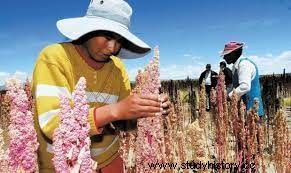
Colonialism disrupted the individual and social relations between the natives and their natural worlds by demanding the withdrawal of resources for economic development. Existing colonial institutions and policies have dominated the free market economy, and include trade in natural resources and created an impoverished subsistence economy for indigenous communities. The global economy is experiencing an increasing ecological disaster through global climate change and depletion of resources. agribusiness dominates household farmers in Bolivia and elsewhere. These local farmers are first and foremost the poor native farmers who are strongly affected by inconsistent weather and irregular crop production. The global economic agenda is not focused on the spiritual or emotional connection that indigenous communities have to their natural environments, their economic incentives continue to be stronger than the local voice.
The impact of greed on humanity
The historical and therefore modern implications of colonialism are strongly demonstrated in Evo Morales' timeline for power. His intentions to bring a devastated state together were overwhelmed by the same sin that has historically corrupted all nations, greed. The importance of his presidency is a clear indicator that the capitalist, colonial interests and indigenous environment problems are incredibly intersectional and directly responsible for the future of our planet. The basis for colonization was to divide people and their resources into hierarchical systems. These systems are still dramatically rooted in our culture, economy, political systems and general human-environmental conditions. If we could come together as one and finally acknowledge that division ultimately harms everyone involved, we might be able to heal ourselves and our dying environment.
